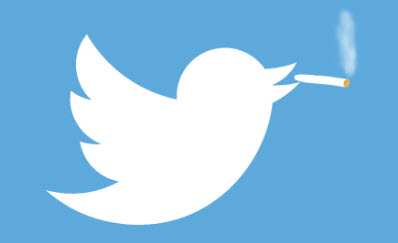Elon Musk’s decision to allow US firms to advertise cannabis products on Twitter has major implications for the evolving European cannabis industry – but not all of them are positive
Apart from changing Twitter’s algorithms to boost Elon Musk’s bon mots du jour, reinstating Donald Trump and banning critical journalists, the tech baron has recently made the pronouncement that henceforth in his newly acquired social media universe, American cannabis firms can advertise their products there too. Not exactly a good look or a rash of good decisions, but welcome to the world in the third decade of the “new” century.
While it will be interesting to see what happens in the US, where Google has already made the pronouncement that medical cannabis products are no longer verboten, the implications for Europe, and most certainly Germany loom large – for good and for bad.
Going Around Federal (Sovereign) Law
In the US, decisions about advertising booze and cigarettes tend to fall under Congressional mandate. It is no longer possible for example, for cigarette companies to advertise their products at all via conventional media. The decision to implement the ban was included in the Public Health Cigarette Smoking Act which forbade such communication on all FCC-regulated airwaves as of 1971.
And as of 1996, hard alcohol advertising was also banned, although this was done “voluntarily” by the industry.
In the cannabis space, this entire enchilada is ripe for discussion, but it is also clear that Musk does not seem to trouble himself with federal regulations of the communication kind. The world must be free to hear hate speech and poison itself unabated. That’s what the First Amendment is for, after all.
Abroad, however, this begins to bring up very tricky implications, starting with the fact that the German government has already been clear that the pending recreational cannabis market in Deutschland may not advertise at all. Yet CBD products have been advertised, including on the side of trams.
Plus of course, like Facebook, Twitter is facing increased concerns from (at minimum) privacy regulators in the EU and the ability of the firm to comply with new regulations about policing (and removing) illegal content on the platform.
How will the Twitterverse, if not the cannabis industry respond?
Not Necessarily a “Win,” Especially in Europe
Unfortunately, given the current state of the cannabis industry, even in Europe, and the desperation to promote its products, it is unlikely that the new announcement by Twitter will do anything other than delight cannabis executives desperate for ways to reach consumers in certain US state markets.
Beyond this, if American social media platforms end up being banned from Europe for (among other things) sending user information to servers in the United States, this poses a significant problem for cannabis firms here hoping to jump on this bandwagon. Beyond this issue, it is very unlikely that regulators, starting in Germany, will ignore workarounds by European firms to use the platform as a way to promote consumer cannabis products.
A New Day for Social Media and Cannabis?
Broadly speaking, social media has been an invaluable tool for communication and organization as the cannabis industry legalizes. The entire legalization movement itself has been broadly assisted by social media, generally to move the reform needle forward, globally.
Unfortunately, social media platforms, particularly Twitter, have also been used for nefarious purposes too, including manipulating stock prices (far beyond cannabis). The Juicy Fields scam relied heavily on various forms of social media, including Twitter, to sell the idea that it was a legit operation.
Bottom line? This development may well be a boon for the American industry, but is unlikely to be a safe, much less dependable outlet for direct advertising any part of the industry in Europe (including hemp and CBD products) anytime soon.
This does not mean that cannabis advocacy will disappear online, nor should it.
What it does mean is that the rules are changing – and as a result, things just got more complicated.







